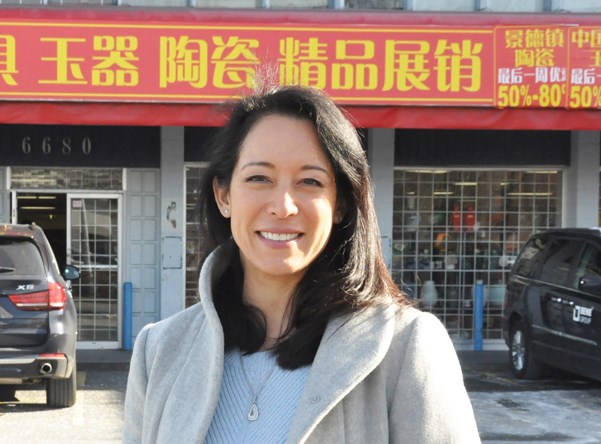Richmond city Coun. Alexa Loo called the arguments against the expansion of the Tilbury liquefied natural gas (LNG) plant “spurious” and said other councillors were making “irresponsible allegations” about its potential dangers.
Council voted 8-1 to oppose the FortisBC expansion project, which would double the capacity of the Tilbury LNG plant in Delta, just across the water from Richmond. They also endorsed a city staff report outlining concerns about the project, which they will send to senior levels of government as part of the environmental assessment process and to other Lower Mainland municipalities, asking their councils to endorse the comments.
Loo called the city staff report “one-sided,” saying it doesn’t look at positive aspects of LNG, for example, financial benefits like $60 million in “contractor spending” during the 2018 expansion of the plant.
“We’ve been through COVID, we’re running massive deficits federally and provincially, oil and gas is part of our way through this,” Loo said.
The report also doesn’t look at the environmental benefits, she added, citing examples of New Delhi and China where LNG has reduced pollution.
Loo also said she’s worried about councillors making “irresponsible allegations” about the risks and potential threats for disaster. She pointed out LNG has been at Tilbury for 49 years without any “major incidents.”
“LNG dissipates, it doesn’t sink and it doesn’t explode and it doesn’t affect the fish when it does spill,” Loo added. “To suggest it is going to do those things is spurious and I don’t think we should be making all those judgments.”
While Coun. Bill McNulty argued for Richmond to push for a “watch dog” on the Fraser River, Coun. Harold Steves said the argument that LNG is a cleaner fuel is a “myth.”
Steves said scientists studying LNG production and its use concluded burning LNG is just as bad for producing greenhouse gases, if not worse than using coal because of the loss of methane when it’s taken from mines and during the fracking process as well as its impact during production and transportation.
“When they add it all up, burning LNG is every bit as bad as coal in terms of producing greenhouse gases,” Steves said. “So there are no benefits for the environment for burning LNG. It’s simply, unfortunately, B.C. has a lot of it and we can make money selling it, but it’s certainly not good for the environment - it’s certainly not good for climate change that is happening in our planet.”



